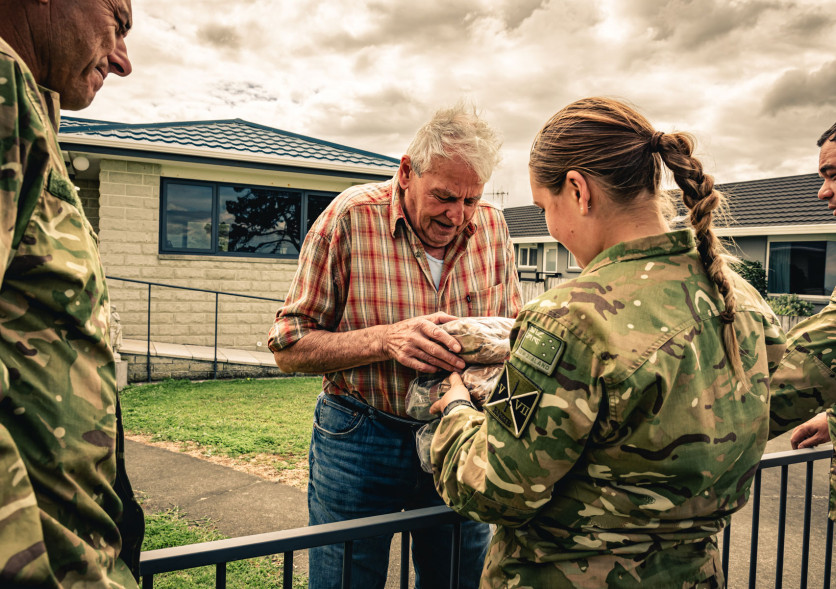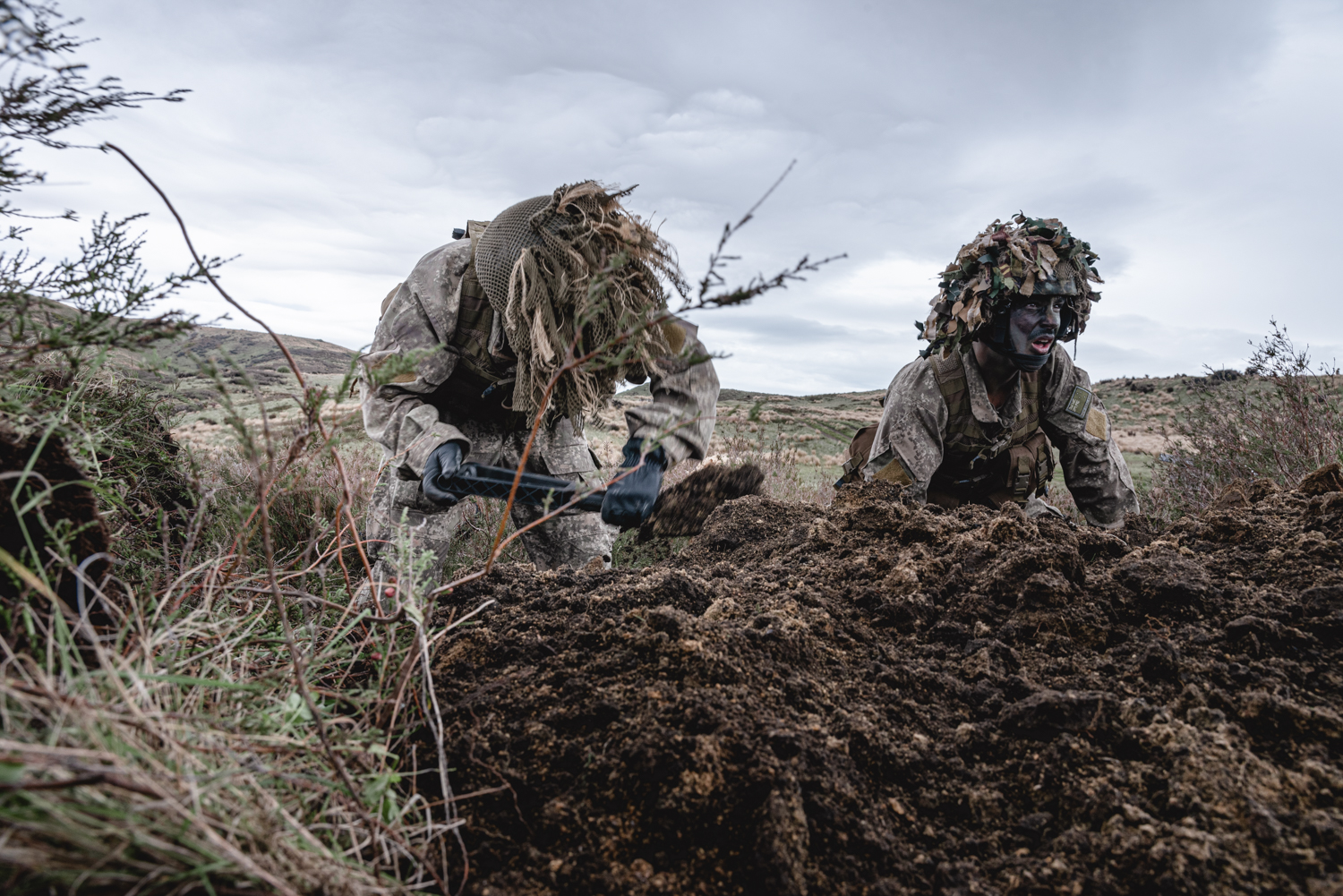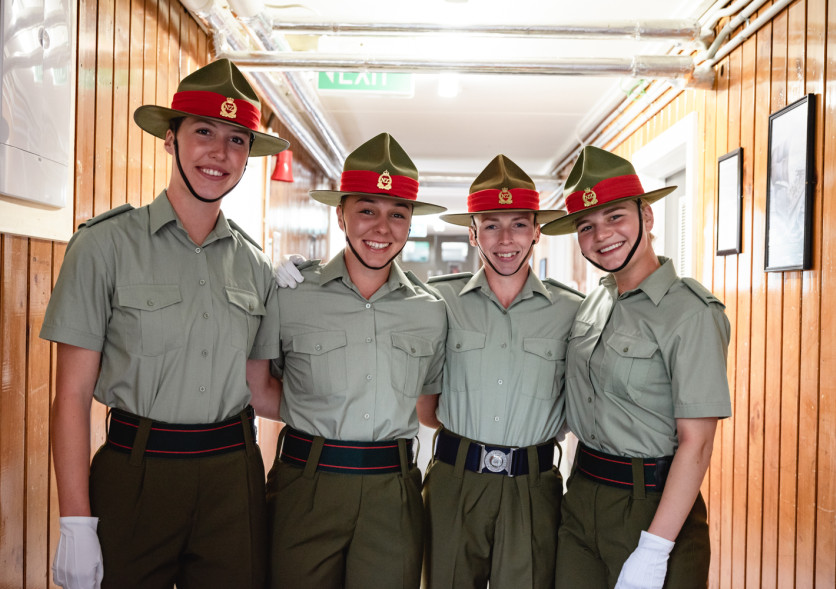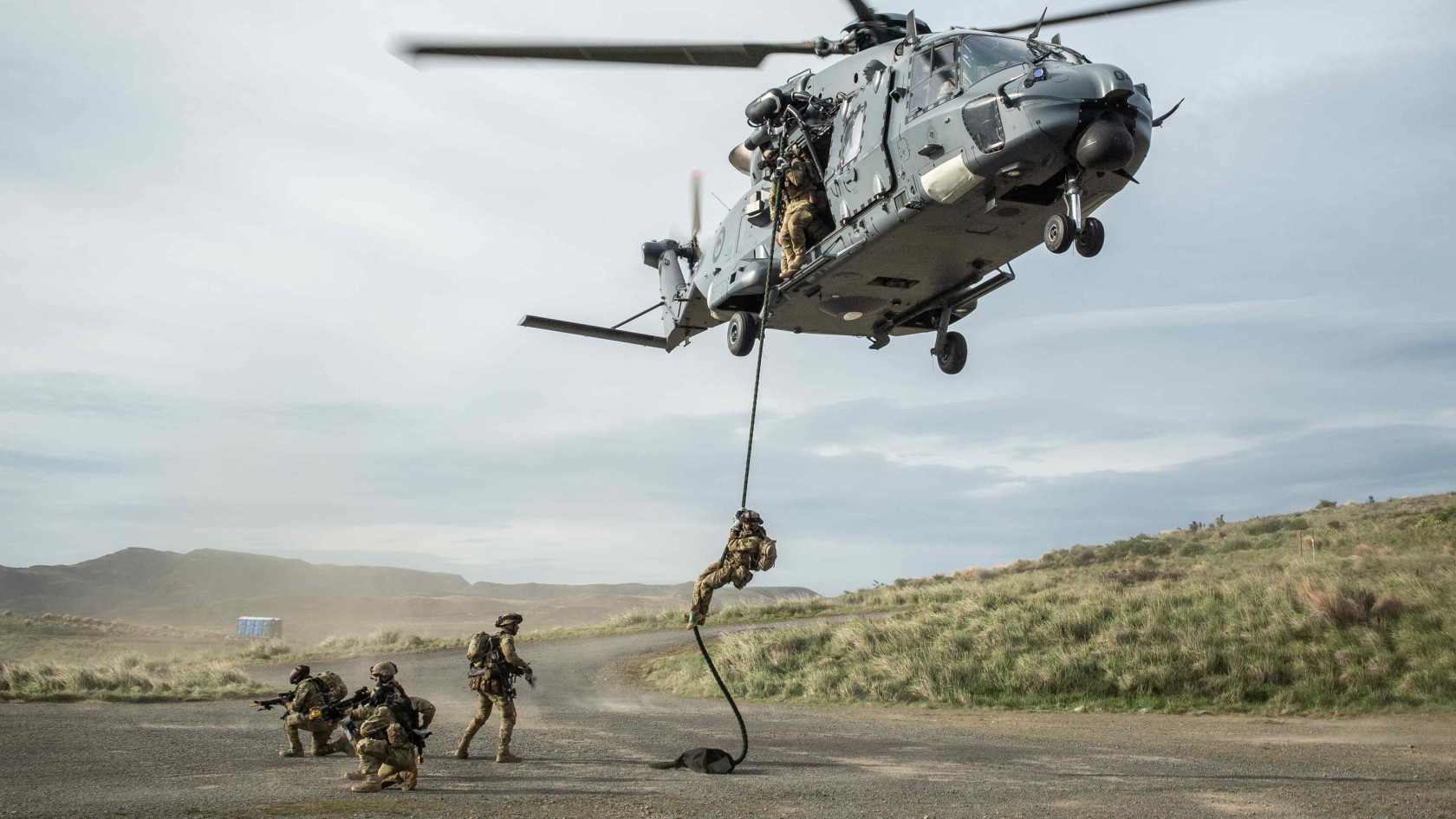Army Reserves
Part-time career, full-on rewards
The Army Reserve Force (ResF), formerly known as the Territorial Force (TF), is a part-time job like no other. Whether your everyday life involves accountancy, brick-laying, customer service, or you are a recent graduate – the ResF will let you escape your everyday life. ResF soldiers and officers play a crucial role in supplementing the full-time component of the Army (Regular Force) on local and international operations.
Reserve Force soldiers and officers will generally train one weekend per month, as well as the occasional weekday evening, with the minimum expected commitment being a cumulative 20 days per year.
Making history
The Army Reserve Force (ResF) is the part-time component of New Zealand’s Army and has played a significant role throughout New Zealand’s history and remains relevant today. ResF frequently supplement regular units in New Zealand and overseas. In recent years, reservists have provided support to international and domestic disaster relief, domestic civil service, support to Scott Base Antarctica, international peacekeeping and training, combat operations and many more.

Who we’re looking for
As a soldier in the ResF, you will learn skills and gain experiences that you would never get in a civilian role. Our part-time soldiers come from all walks of life, from students to lawyers to tradespeople. Some enjoy the chance to do something different from their everyday life, and some get the opportunity to utilise their civilian expertise in a military environment.
As a Reserve Force soldier, you will be trained in basic soldier skills including; weapon handling, first aid, field craft, navigation, fitness training, and teamwork. As your part-time career advances, you will also get the opportunity to develop your leadership abilities and more complex planning skills.

Career progression and training
Training Overview
MOD 1
MOD 2
Corps Training
Ongoing Training
Initial training consists of three stages which equates to approximately 7 weeks of training. Module 1 (Introduction to the New Zealand Army and Reserve Force service) is conducted throughout the calendar year, with Module 2 (Basic Training) & Corps Training (Initial Trade Specific Coursing) taking place in November, December and January of a given year.
Module 1 (Introduction to the New Zealand Army and Reserve Force service) is conducted across New Zealand at specified times throughout the calendar year. This course is run in Auckland (Whangaparāoa Leadership Centre or RNZAF Base Auckland, Whenuapai), Wellington (Trentham Military Camp) or Christchurch (Burnham Military Camp). Your Candidate Engagement Facilitator will outline the intended MOD 1 location as part of your initial application to join the ResF.
Module 2 (Basic Training) is conducted at Waiouru Military Camp. This is a 38 day residential course, taking place across November and December.
Corps Training (Initial Trade Specific Training) is conducted immediately after Basic Training, in the January of each calendar year. This is typically a 14 day commitment. Depending on your trade, other corps may choose to deliver initial trade specific training as block courses or modularised training periods over the year following your graduation from Basic Training. Trade specific training requirements will be outlined as part of your application process.
MODULE 1 - Introduction to the New Zealand Army and Reserve Force Service
The purpose of this stage of training is to familiarise recruits with the Army, and Reserve Force service prior to their attendance at the Recruit Territorial Force All Corps Basic (Module 2 - Basic Training).
This is a two day introduction to life in the Army. Over this period, you will be attested into the New Zealand Army, learn the basics of drill and command, Military Law, the Ethos and Values of the NZ Army and the particulars of Reserve Force service. You will also be taught how to live and operate within the military environment and learn about the standards that are required of you as a soldier.
MODULE 2 - Basic Training
The aim of this course is to develop the individual skill set required of a soldier operating at a basic level of capability. This stage of training is a 38 day residential course conducted upon your arrival at Waiouru Military Camp.
During this stage of your training you will be introduced to:
- Drill
- First Aid
- Operate and communicate utilising in-service communication systems
- Introduction to the Individual Weapon, Modularised Assault Rifle System – Light (IW MARS-L) and light support weapon (LSW-C9)
- Live firing on the range in order to qualify on the IW MARS-L Annual Weapons Qualification
- Introduction to and qualification on the high explosive grenade
- Living in a field environment, including:
- patrolling procedures,
- operating in a rifle section, and
- fieldcraft and battlecraft
- Introduction to Physical Training, including the Army Fitness Test, swim test and timed pack walk, and
- A broadened understanding of military law, including “The Laws of Armed Conflict”
This stage of initial training concludes with a recruit's graduation from the NZ Army training establishment - The Army Depot. Recruits will graduate as a fully qualified soldier (rank of Private/Sapper/Gunner/Trooper/Signaller) in the NZ Army’s Reserve Force, ready to progress on to initial trade specific coursing.
Corps Training - Initial Trade Specific Coursing
This period of initial training is equivalent to a 14 day commitment, delivered as either a residential or modularised course either in the January/February of each calendar year, or the year following your graduation from Basic Training (Module 2).
Initial trade specific coursing differs across the various Army corps. The purpose of initial trade specific coursing is to provide personnel with the necessary basic trade specific skills required of their respective corps.
All personnel will continue to build on the foundational knowledge obtained through Basic Training, with trade specific and ongoing training continuing to refine outputs focused on operations within the combat battlespace. All personnel will train annually to maintain the tenets of the soldiering profession (Move, Shoot, Communicate and Medicate).
Collective training objectives of the corps specific profession, and the fundamentals of soldiering are continually refined as part of your continued annual training compliance.
Army Reserve personnel will generally train one weekend per month, as well as the occasional weekday evening, with a minimum commitment being a cumulative total of 20 days per year. Weekend training usually begins on a Friday evening, finishing on a Sunday afternoon. Soldiers receive a daily rate of pay, commensurate with their rank and experience, and this encompasses any travel time required to attend training. Longer annual field exercises run between 5-10 days.
Training is designed to be flexible, allowing you to choose when you train - meaning you can tailor your service to fit around work and family commitments. Provision also exists for periods of leave of absence from training commitments.
Where appropriate, the Army Reserve also looks to utilise the skills you have already gained as a civilian within a military context, by training in a specific role which relates to your everyday area of expertise. People with backgrounds in medicine, engineering, geographic information systems, information and communication technology, construction and project management and many more are all trained to use their civilian skills within the military domain.
People like you
The Army Reserve Force is made up of every-day New Zealanders who do their normal job in the community then conduct military training in their spare time, choosing to devote a minimum of 20 days every year to military service. Living, working and training in their local community the Army Reserve Force is the public face of New Zealand’s Army, with roles from Whangārei through to Invercargill. To become a member of the Army Reserve Force you must have ended your Secondary School education, be a New Zealand citizen or New Zealand permanent resident class visa holder, able to gain a security clearance and medically fit for service.


Check out roles now
Reservist or full-time? Officer or Sailor? Military or Civilian? There's so many options available in the Army.